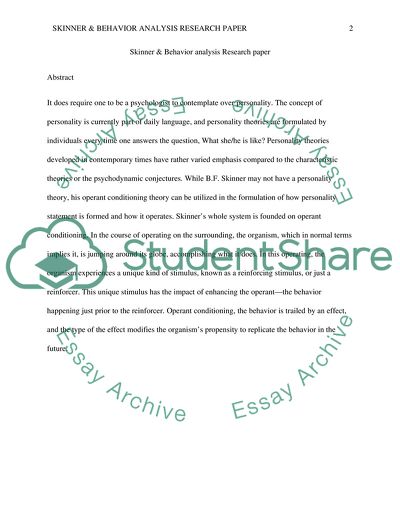Cite this document
(Skinner and Behavior Analysis Coursework Example | Topics and Well Written Essays - 2000 words - 1, n.d.)
Skinner and Behavior Analysis Coursework Example | Topics and Well Written Essays - 2000 words - 1. https://studentshare.org/psychology/1774279-skinner-behavior-analysis-research-paper
Skinner and Behavior Analysis Coursework Example | Topics and Well Written Essays - 2000 words - 1. https://studentshare.org/psychology/1774279-skinner-behavior-analysis-research-paper
(Skinner and Behavior Analysis Coursework Example | Topics and Well Written Essays - 2000 Words - 1)
Skinner and Behavior Analysis Coursework Example | Topics and Well Written Essays - 2000 Words - 1. https://studentshare.org/psychology/1774279-skinner-behavior-analysis-research-paper.
Skinner and Behavior Analysis Coursework Example | Topics and Well Written Essays - 2000 Words - 1. https://studentshare.org/psychology/1774279-skinner-behavior-analysis-research-paper.
“Skinner and Behavior Analysis Coursework Example | Topics and Well Written Essays - 2000 Words - 1”. https://studentshare.org/psychology/1774279-skinner-behavior-analysis-research-paper.


